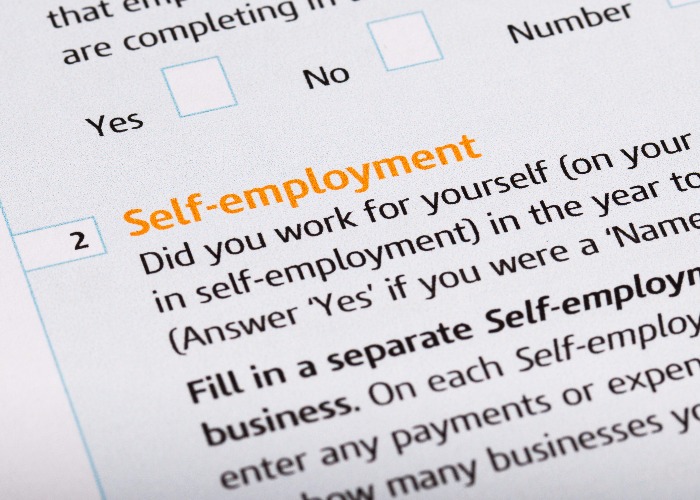Dodgy bosses mean thousands missing out on employment benefits

Almost 500,000 'bogusly self-employed' workers are missing out on sick pay, maternity pay and other employment rights.
New research from Citizens Advice has revealed that as many as 460,000 people could be 'bogusly self-employed’.
Under this deceitful practice, bosses compel staff to identify as self-employed when they’re really employees. This means they can avoid paying minimum wage, employers’ National Insurance, sick pay, holiday pay and pension contributions.
Workers aren’t the only ones who suffer as a result, either. The Government loses tax revenue and responsible businesses could be undercut as a result of the savings made through bogus self-employment.
Self-employed or employee?
Citizens Advice has reported a growth in people asking advisers to determine whether they’re self-employed or not.
Though the current definition of self-employed is rather unclear, there are distinct differences between the two.
Self-employed people can choose their own working pattern, when to take time off and they can work for multiple clients.
Employees don’t have these freedoms, but have a right to parental leave and pay, minimum wage, sick and holiday pay. They’ll also be auto-enrolled on to a pension scheme and can take their employer to an employment tribunal if they feel they’re being treated unfairly.
Research by Citizens Advice revealed that legal tests on some of the ‘self-employed’ would define them as employees. Having work hours set by an employer, using the business’ equipment and having tax deducted from their pay by their employer indicate that someone should be an employee rather than self-employed.
The charity founds that one in ten of the 'self-employed' people it spoke to could be wrongly classified. Based on this figure, the Government is missing out on a whopping £314 million a year in lost tax and employer National Insurance contributions. The loss of employer National Insurance contributions costs the Government over £300 per person per year.
Workers who are bogusly self-employed pay an extra £61 a year in National Insurance that they wouldn’t if they were classified as employed.
In addition, responsible employers could be undermined by employers who don’t pay their staff properly as they have more money to undercut competitors’ prices.
Get more from your current account
Real life cases
Citizens Advice gave loveMONEY some examples of people who had been in contact about their bogus self-employment issues.
Meg
Meg worked as a Childminder’s Assistant but was concerned about her employment status. She worked regular hours every day, didn’t provide her own equipment and didn’t have the option to send someone else to work if she was unable to.
The childminder gave Meg a ‘contract of self-employment’ on her first day. Not knowing any better, she signed it.
In the first seven months of her employment, she had one sick day and one holiday; she was not paid for either.
Though Meg was clearly an employee, she would have to go to employment tribunal to confirm it.
Builder’s employee from the south east
The next case worked for a builder for 15 years and was told he was self-employed, even though he was treated as an employee. His employer paid tax for him, but not National Insurance.
Last year, he took three days off due to back pain and has not been offered any work since. Again, he would have to have gone to tribunal and pay in excess of £1,000 to confirm if he was self-employed or not and claim compensation.
Farah
Farah was a Carer’s Assistant for a single company who, like Meg, was given a self-employment contract from day one.
After two years of working there, she fell pregnant her first child and was told that unless she returned to work as soon as possible after the birth, she’d lose her position. She thought that her partner could take the paternity leave but under the terms of her self-employment, she didn’t have the right to shared parental leave.
Tackling the issue
Citizens Advice wants the Government to clarify what self- employment is as a priority, as the current lack of clarity makes it easier to exploit employees. Employment law and tax law take different approaches making it even harder to define.
It also recommends extending the rights which are reserved for employed people to self-employed people too, reviewing tax and National Insurance to ensure that self-employed people are treated fairly.
Taking matters to tribunal is not always an option for workers, so making the process cheaper and easier would be greatly beneficial too.
Get more from your current account
More on rights, scams and politics:
Sharp jump in current account fraud
Consumer ombudsman opens doors to complaints from any sector
Windows 10 update focus of email scam
Review launched into making cheaper financial advice available to all
Comments
Be the first to comment
Do you want to comment on this article? You need to be signed in for this feature